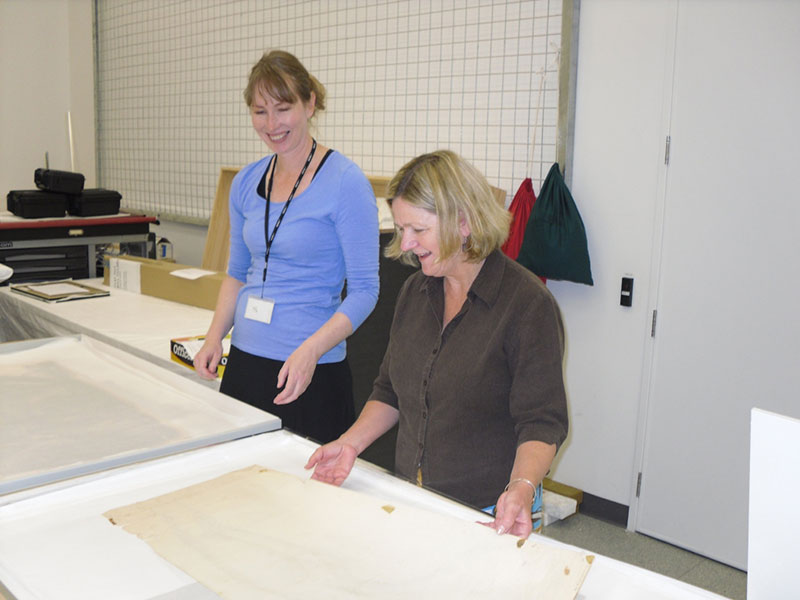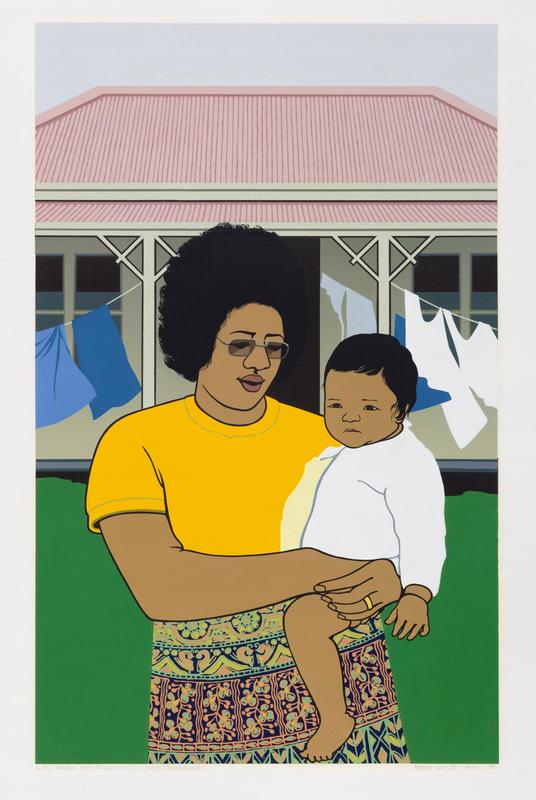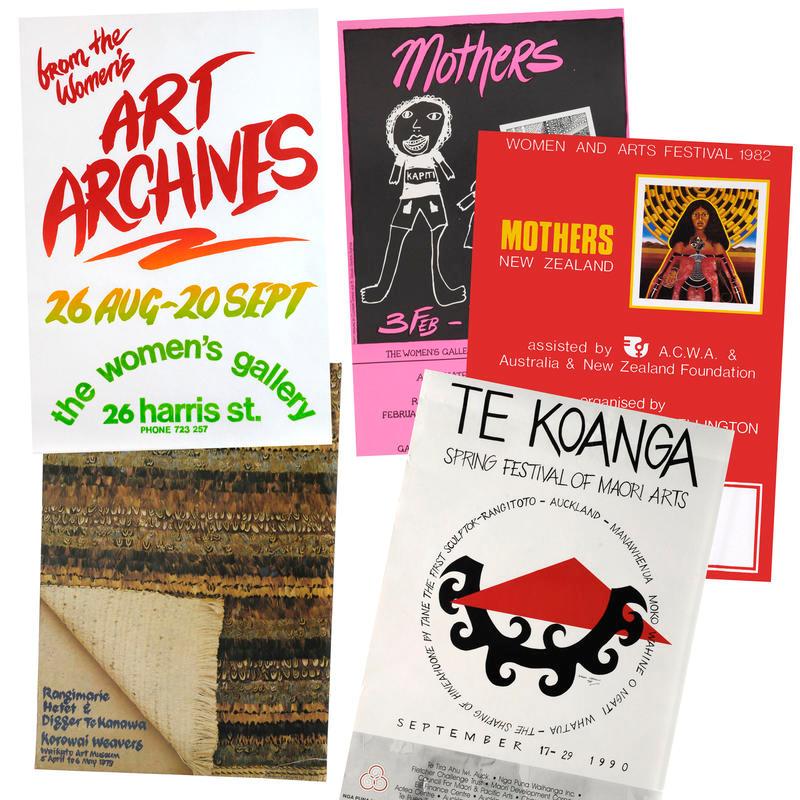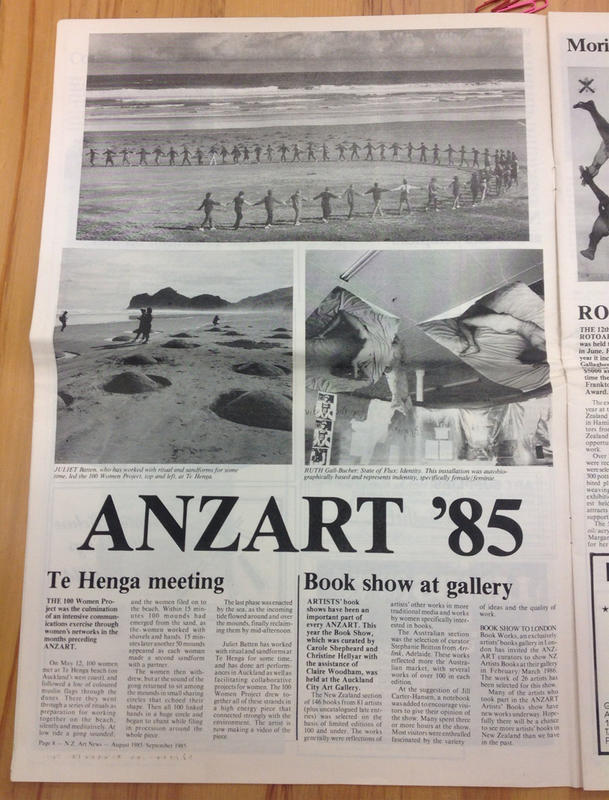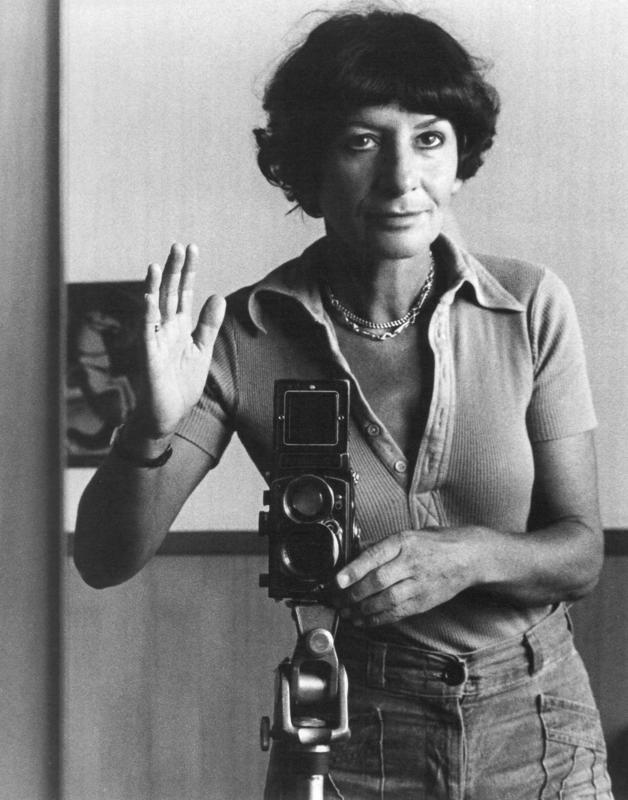—
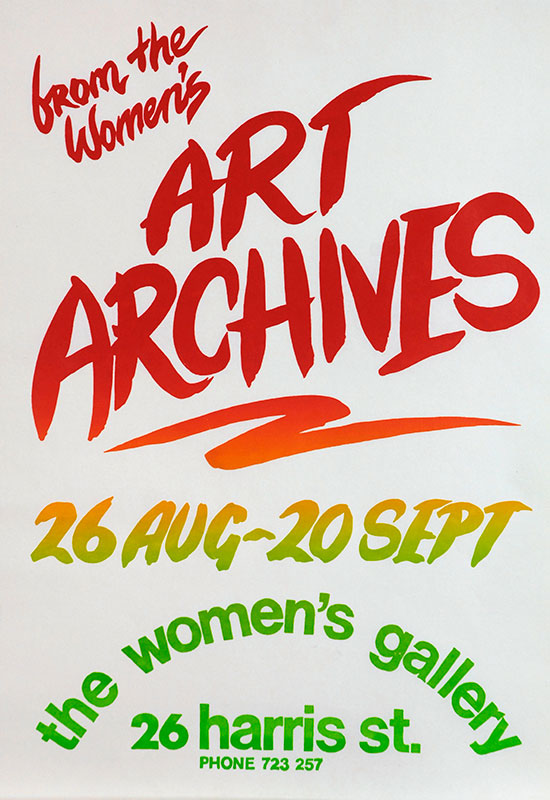
exhibition Details
At the height of the second wave feminist movement in Aotearoa New Zealand women artists campaigned both for equality within the arts and for wider socio-political change. Many also diligently recorded their activities. Performance works were filmed, interviews conducted, letters demanding action sent and received, meetings minuted and manifestos written and circulated. Ideas were chronicled in scrapbooks, protest marches photographed, posters designed, and publications like Broadsheet and Spiral established and distributed.
Creating an enduring record and preserving these ‘memory-traces’ for future generations is something that feminist artists and scholars have engaged with for decades. Systematic archiving or ‘outrage in order’ as Kate Eichhorn describes it in The Archival Turn in Feminism (2014) is apparent in the carefully collated documentation that makes up the cultural artefacts of the movement both here and internationally. The proliferation of material during this period demonstrates the way in which feminist print culture both supported and sustained the women’s movement.
Ensuring these collections found a place within the historic record was also a conscious strategy of many feminist initiatives:
Given the historic pattern that has conspired towards the invisibility of women’s art, the project is clearly an affirmative action to ensure that documentation material is retained, in order that references to women artists can continue beyond this particular generation. – Lita Barrie, Women’s Art Archive Interview Project (1984)
- Date
- —
- Curated by
- Catherine Hammond and Caroline McBride
- Location
- Ground level
related events
Related Content
Women's Art Exhibition Posters
E H McCormick Research Library, Auckland Art Gallery Toi o Tāmaki, gift of Juliet Batten, 2008
RC2008/4
Women's Art Archive Interview Project
E H McCormick Research Library, Auckland Art Gallery Toi o Tāmaki, gift of Lita Barrie, 1984
RC2002/10
Juliet Batten Archive
E H McCormick Research Library, Auckland Art Gallery Toi o Tāmaki, gift of Juliet Batten, 2009
RC2009/7
Feminist Art Networkers Archive
E H McCormick Research Library, Auckland Art Gallery Toi o Tāmaki, gift of Feminist Art Networkers, 1990
RC2003/2
Marti Friedlander Archive
E H McCormick Research Library, Auckland Art Gallery Toi o Tāmaki, on loan from the Gerrard and Marti Friedlander Charitable Trust, 2002
RC2007/11
